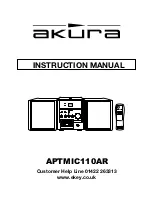
PRIMAAX
®
EX / PRIMAAX
®
for International Truck Vehicles
17730-283
33
Preventive Maintenance
LEAKING VS. MISTING SHOCK VISUAL INSPECTION
The inspection must not be conducted after driving in wet weather or a vehicle wash. Shocks
need to be free from water. Many shocks are often mis-diagnosed as failures. Misting is the
process whereby very small amounts of shock fluid evaporate at a high operating tempera-
ture through the upper seal of the shock. When the “mist” reaches the cooler outside air, it
condenses and forms a film on the outside of the shock body. Misting is perfectly normal and
necessary function of the shock. The fluid, which evaporates through the seal area helps to
lubricate and prolong the life of the seal.
FIGURE
6-18
A shock that is truly leaking and needs to be
replaced will show signs of fluid leaking in streams
from the upper seal. These streams can easily be
seen when the shock is fully extended, under-
neath the main body (dust cover) of the shock.
Look for these potential problems when doing a
visual inspection. Inspect the shock absorbers fully
extended. Replace as necessary.
NOTE
PRIMAAX EX / PRIMAAX suspensions are equipped
with a premium seal on the shock, however this
seal will allow for misting to appear on the shock
body (misting is not a leak and is considered
acceptable).
If the shock is damaged install new shock absorber
and replace as detailed in the Component Replacement Section of this publication.
AIR FITTING INSPECTION
1. If an air leak is suspected, begin by building up the air system to normal operating pressure.
2. Spray all nylon tube air fittings with a soapy water solution to detect the leak location.
NOTE
Air lines and fittings may be inspected for leaks using a soapy water solution. The height
control valve, however, cannot be inspected using this method. All height control valves have an
allowable leakage rate. The only acceptable method for inspection of the height control valves
is the height control valve test found in this section.
3. If an air leak is located, ensure the tubing end is clean and in good condition and the end
is cut square. Check to see if the tubing is binding, bent or being pulled upon.
4. Visually inspect the air fitting’s O-ring seal for signs of damage or contamination.
Pro Gear and Transmission • 906 W. Gore St. Orlando, FL 32805 • 1 (877) 776-4600 / (407) 872-1901 • [email protected]
















































